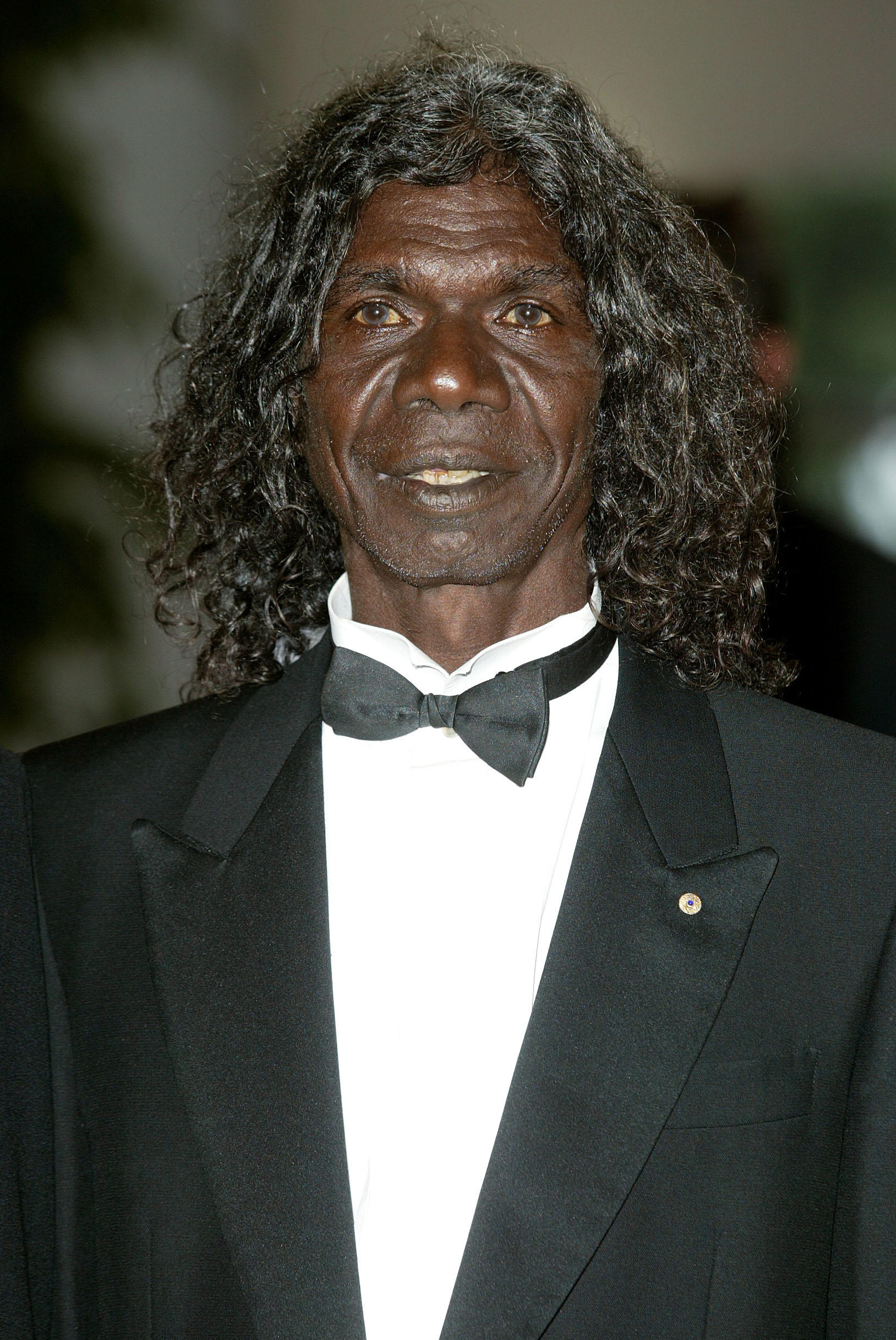Gulpilil, David (1953?-2021), was an Australian Aboriginal motion-picture actor, dancer, and writer. Gulpilil became famous after starring in the 1971 film Walkabout. In the movie, he played an Aboriginal boy who rescues two British children while undergoing a traditional rite of passage. He was internationally known for his roles in many iconic Australian films, including Crocodile Dundee (1986), Rabbit Proof Fence (2002), and Australia (2008). 
Gulpilil Ridjimiraril Dalaithngu was born near Maningrida, in Arnhem Land. Arnhem Land, in the northeastern corner of the Northern Territory, has long been a center of traditional Aboriginal life. Gulpilil’s birth date was recorded as July 1, 1953, by local missionaries, but he later stated that he did not know the actual date of his birth. He had a traditional Indigenous (native) upbringing with the Mandjalpingu people. They are part of the Yolngu peoples, an Australian Aboriginal group in the Northern Territory. Later in his childhood, he lived at a Christian mission school in Arnhem Land, where he was renamed David Gulpilil.
In 1969, Gulpilil was performing a traditional dance when he was noticed by the British filmmaker Nicholas Roeg, who cast him in Walkabout. The film was based on the 1961 literary classic by the Australian author James Vance Marshall. Gulpilil’s other critically acclaimed films of the 1970’s included Storm Boy and Mad Dog Morgan (both 1976) and The Last Wave (1977). In 1986, he played an Aboriginal friend of the title character in Crocodile Dundee, portrayed by the Australian actor Paul Hogan. The movie became one of the most successful Australian films of all time.
In 2002, Gulpilil played an Aboriginal elder in the film Rabbit-Proof Fence, based on the 1996 memoir by the Australian author Doris Pilkington Garimara. Also in 2002, Gulpilil began his long collaboration with the Australian filmmaker Rolf de Heer, starring in the drama The Tracker. Gulpilil convinced de Heer to produce the 2006 motion picture Ten Canoes, which was the first movie ever filmed entirely in an Australian Aboriginal language. Gulpilil narrated the film. The film won a special jury prize at the Cannes Festival. Throughout the 2000’s, Gulpilil was featured in several documentary films about his life and the movement for Indigenous rights.
In addition to his acting fame, Gulpilil became one of the most renowned traditional dancers in Australia. He was a four-time winner of the prestigious Australian dance competition Darwin Australia Day Eisteddfod. He wrote two children’s books featuring traditional Yolngu stories: Gulpilil’s Stories of the Dreamtime (1979) and The Birirrk, Our Ancestors of the Dreaming (1983).
In 2011, Gulpilil was convicted of domestic assault and sentenced to a year in prison. After his release, he continued to work in film. For his performance in Charlie’s Country (2014), which he co-wrote with de Heer, Gulpilil won an award for best actor at Cannes. In 2019, he received a lifetime achievement award from the National Aborigines and Islanders Day Observance Committee. He died on Nov. 29, 2021.
